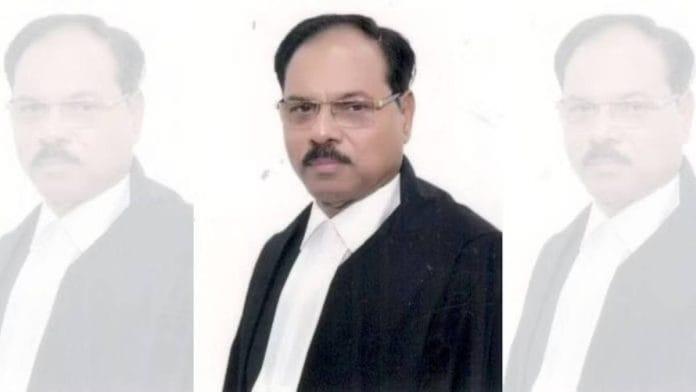New Delhi: A group of 55 MPs have submitted a notice to move a motion for impeachment of Allahabad High Court judge, Justice Shekhar Kumar Yadav, alleging that he “engaged in hate speech and incitement to communal disharmony in violation of the Constitution of India”. They allege that his remarks were “inflammatory, prejudiced, and directly targeted minority communities”.
The MPs—including Vivek Tankha, Digvijay Singh and K.T.S. Tulsi of the Congress, P. Wilson of DMK, and John Brittas of CPI(M)—submitted the notice to the Secretary General of the Rajya Sabha P.C. Mody Friday.
At the event on 8 December, held within the Allahabad HC premises, Justice Yadav said, “Kathmullah… are fatal for the country”, in an apparent reference to Muslims. As ThePrint reported earlier, he also said, “You shouldn’t let this desire inside you die down…otherwise it won’t take very long for it to become Bangladesh and Taliban. It is important to publicise it among people that they should recognise themselves and their religion.”
The notice, seen by ThePrint, alleges that prima facie, Justice Yadav’s speech “targeted minorities and displayed bias and prejudice against the minorities (Katmullah)”. It asserts that Justice Yadav “went on to make outrageous, derogatory and hateful statements” at the event.
Such statements, it says, “jeopardise the judiciary’s role as a neutral arbiter and protector of rights for all citizens”.
“The statements, which have been widely documented and reported, encouraged animosity and division among different religious and communal groups, contravening the secular ethos of the Constitution of India,” the notice asserts.
It also cited the ‘Restatement of Values of Judicial Life’ adopted by the Supreme Court on 7 May, 1997, which is a code of judicial ethics and serves as a guide for an independent and fair judiciary. The notice says that Justice Yadav’s speech violated this document, because he has “entered his views in public on political matters relating to the Uniform Civil Code”.
These rules mandate judges to maintain impartiality, equality and restraint in their judgments as well as outside the court.
The notice therefore requests that the motion be admitted and forwarded to the President in accordance with the Judges (Inquiry) Act, 1968. It then demands the constitution of an inquiry committee to investigate the charges of hate speech, communal disharmony and violation of judicial ethics. It goes on to seek initiation of appropriate proceedings to remove Justice Yadav from office if the allegations against him are proven to be right.
Also read: Bar Association of India demands apology from Justice Shekhar Yadav. ‘Contrary to secularism’
The procedure of removal
Article 124(4) of the Constitution, along with the Judges (Inquiry) Act provide the mechanism for removal of a judge found incapable of continuing in office. This can be done on the basis of a motion in either the Lok Sabha or Rajya Sabha.
To begin the process, under Article 124 (4), a judge may be removed only through a motion in Parliament with two-thirds support in each House. A motion has to be moved by either 100 Lok Sabha members or 50 Rajya Sabha members. If the motion is admitted, the Speaker of either of the two Houses constitutes an inquiry panel in accordance with the Judges (Inquiry) Act.
This three-member committee, headed by a sitting Supreme Court judge, then submits a report to the Speaker. If the panel finds that the charges against the judge are proven, the Parliament may debate over the motion, and the judge can present his or her case. The motion is then put to vote.
The motion is considered to have passed, if there is two-thirds support from those present and voting, or support from the majority of the total membership of the House. The motion has to be put to vote in the other House too, after which it can be sent to the President for removing the judge.
Also read: Can Justice Shekhar Yadav be removed? A look at judicial ethics code & disciplinary process






